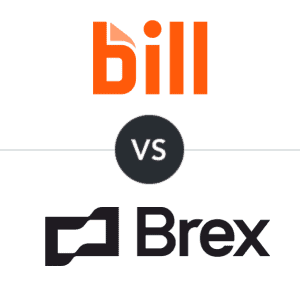Our guide explains why it's important to have a corporate credit card policy for your business and what to consider including in it.
A corporate credit card policy protects your organization, its financial security, and its employees. But what should a corporate credit policy include? Are there corporate credit card policy best practices you can learn from? Let’s dive in.
What Is A Corporate Credit Card Policy?
A corporate credit card policy is a set of guidelines that helps managers and employees understand the rules for appropriately using corporate credit cards. Using corporate credit card policy best practices ensures equal treatment for all employees and protects your organization from credit card misuse and misunderstandings.
In short, if you issue corporate credit cards in employees’ names, you need a corporate credit card policy to protect your organization and employees.
Why A Corporate Credit Card Policy Matters
The bill for a corporate credit card comes either to you (owner/manager) or an accounting executive within your organization.
Some employee expenses may be tax deductible, and other expenditures they potentially could make may not be for purchases your company is willing to pay. So you need to be very clear about what qualifies as a legitimate business expense that employees can use their cards to pay for. That forms the foundation of a good corporate credit policy.
There are multiple benefits of having a solid corporate credit card policy. Here are a few:
- Ensure Understanding: Why does your business give employees corporate cards? Typically, corporate cards are used only for specific purposes (though these may vary slightly by employee or department). Employee travel is one obvious example. When your workers travel on company business, they may use their corporate cards to pay for airfare, ground transportation, meals, hotels, and the like. Employees who work primarily in the office may use a corporate card to pay for meals with clients, subscriptions, and supplies for team celebrations. These expenses may come with spending caps or other limitations. However you envision your employees using their corporate cards, you should spell it out in a clear policy.
- Outline Eligibility: A corporate card should be issued to employees who have demonstrated use for one. It usually makes sense to issue cards to groups or classes of employees. That may be defined by job description, such as salespeople, or responsibility, such as salespeople who frequently travel alone. Many of today’s corporate cards also offer physical or virtual cards that can be issued temporarily, such as when an office-based employee schedules a one-time business trip or when a manager needs to purchase equipment or supplies for a new project.
- Describe Cardholder Responsibilities: Don’t leave this to chance. Employees with corporate cards have permission to spend company money. Make sure they understand your corporate card policy and the privileges and responsibilities these cards bring. That includes following all guidelines for proper use as well as safe storage and reporting lost or misplaced cards.
- Clarify Rewards Ownership: Many corporate cards accrue “points” as they are used, with cash back or travel rewards available with points redemption. Make sure employees understand whether they or the company will claim ownership of these rewards.
- Explain Reporting Requirements: Using a corporate credit card is a convenience for employees, replacing the need to spend personal funds and wait for reimbursement. Still, expenditures via corporate card must be tracked and categorized. Let employees know if you want them to collect and submit every receipt if they must submit formal expense reports, and, if so, how often they should do that.
- Describe Emergency Uses, If Any: Corporate cards are typically used for preapproved legitimate business expenses. (Employees probably will not need to request permission for each use as long as expenses fall within generally approved categories, such as airfare or hotels.) Occasionally, however, employees traveling on company business may encounter an unusual situation, such as lost or stolen luggage or laptops. Your corporate credit card policy should spell out what emergency expenditures are generally acceptable, including whether and how these expenses should be repaid once the employee returns home.
- Lay Out Consequences For Misuse: Giving employees corporate cards is a sign of great trust, and you can’t emphasize that enough. When you issue corporate credit cards in employees’ names, the cardholders are responsible for appropriately spending company funds. It’s important that you protect your organization by ensuring your corporate card policy also spells out inappropriate uses and any consequences for misuse.
How To Create A Corporate Credit Card Policy
Your business needs a corporate credit card policy to make clear to employees how, why, and where they can use the company credit cards you arrange to have issued in their names. It sounds simple, and it can be, as long as you make the effort to create a clear set of guidelines for employees using a corporate card.
Your corporate credit card policy needs to be in writing, and a manager or human resources representative should review it with employees before they sign it and receive a corporate card.
Here are some specific steps you can use as a corporate credit card policy sample:
Step #1: Identify The Purpose Of Corporate Credit Cards For Your Company
While it may seem obvious to you, it might not be to everyone else, so take the time to explain why your company issues corporate cards to employees. It’s okay to keep it simple.
EXAMPLE: [Company Name] may issue corporate cards to some employees to allow them to pay upfront for certain business-related expenses. Corporate cards may be issued in employees’ names, but they belong to the company and may be revoked at any time. Cards may be issued for a specific purchase or a range of approved expenses, depending on an employee’s job description and responsibilities. Each corporate card issued will have a credit limit attached that matches an employee’s job scope and anticipated expenditures.
Step #2: Define Eligible Employees
You probably won’t be giving a corporate card to every employee (though it’s certainly fine to do so if that fits your business needs!). It’s best to explain exactly who you will allow to use a corporate card and under what circumstances.
EXAMPLE: [Company Name] corporate cards will be issued after 30 days of continuous employment and satisfactory performance to employees in certain categories, including salespeople who regularly travel on company business, account managers who routinely entertain clients, and managers who have purchasing responsibilities for their departments. Other employees may be issued regular or temporary corporate cards at their manager’s discretion.
Step #3: Describe Acceptable Uses & Limits
Most employees probably will understand automatically that business credit cards are for legitimate business expenses only. For the tiny minority that may not, make expectations crystal clear. In addition to spelling out how employees can use their corporate cards, clearly state what they can’t use their cards to purchase.
EXAMPLE: [Company Name] corporate cards may be used only for preauthorized business expenses in categories that include software subscriptions, travel expenses, client entertainment, meals while traveling on company business, and specific work-related equipment. Employees who regularly make these kinds of work-related purchases do not need prior authorization for each expenditure. Employees may not use corporate cards to pay for alcohol except for moderate amounts during a business meal, tobacco or marijuana/CBD products, gambling or lottery tickets, adult entertainment, cash advances, or firearms.
It’s also a good idea to lay out any policies regarding emergency expenses while traveling. Employees may need to replace personal or tech gear on the road. Do they need prior approval if their luggage is lost before an important presentation or their laptop gets stolen? If they need to pay for medical care or purchase personal items, can they? And will they be expected to reimburse the company for those expenditures? Think about the possibilities and spell out expectations.
Step #4: Explain Reporting Requirements
One of the benefits of using corporate cards is that employees won’t have to save receipts and submit detailed expense reports for reimbursement. Your company won’t have to scan and save pages of receipts, either because you’ll see all expenditures on a statement each month. But this doesn’t necessarily mean you can completely eliminate the paper trail of receipts. If you expect employees to submit receipts, code expenses, and make reports, let them know how to do so.
EXAMPLE: Employees using a corporate card for approved business expenses should save their receipts for a minimum of 30 days after the end of the reporting period in which expenses are incurred in case of discrepancies or disputes. Employees using corporate cards must submit a detailed expense report before the end of each month that shows the business purpose and spending category of each charge made using the corporate card.
Step #5: Talk About Worst-Case Scenarios
You hope everything will go smoothly, employees will use their cards responsibly, and no inappropriate charges ever show up. That’s a great attitude, but it’s not a good corporate policy. You need to discuss some common problems that can arise with corporate card usage and explain how your company will react. The following example is not an exhaustive list. Think about the ways you anticipate employees using cards and what might go wrong. If you envision a range of potential disciplinary actions, state them clearly so that no one will be surprised and you won’t have to fear legal challenges.
EXAMPLE: Each [Company Name] corporate card is company property and does not belong to the employee holding it. Corporate cards may be revoked if problems arise or misuse occurs. For example, employees must do their best to keep their cards secure. Unauthorized users, including family and friends, should not be given access to corporate cards. If a card is lost or stolen, the employee must notify the company/take steps to cancel the card as soon as they’ve discovered the loss. Failure to submit expense reports as required, unauthorized use, or inappropriate purchases may result in the revocation of corporate card privileges. Employee access to corporate cards will end when the employee voluntarily leaves the company or is terminated.
Step #6: Have The Employee Read & Sign The Policy
A corporate credit card policy should not be like one of those “user agreements” that no one really bothers to read before clicking the box to acknowledge. This is important enough to take the time to get it right. Ask each employee to meet with a manager or human resources representative. Read through the policy together, discuss it, encourage employees to ask questions when clarification is necessary, and answer those questions.
The employee and the company representative each should sign and date the policy, acknowledging that it was read and understood together. Be sure to give a copy to the employee before you put the original into their employee file.
The 10 Corporate Credit Card Policy Best Practices
Now that you understand the basics of creating a corporate credit policy, let’s go over some specific corporate credit card best practices. These practices can help you make sure employees use cards appropriately and that your organization’s financial risk is as low as possible.
Stick To Your Policies
Once you have corporate credit card policies in place, stick to them. You’ll only weaken your policies if you don’t enforce them. Remember, your corporate credit policy should include some information about emergency exceptions. Outside of that, all employees, even executives, need to abide by the clear policies they agreed to before they were issued their cards.
Adjust Policies As Needed
It’s smart to review all your business policies and procedures periodically, and your corporate credit policy is no exception. Your employees’ spending habits and patterns may change as your business changes. Don’t make the mistake of sticking rigidly to outdated policies that no longer serve your business well. And don’t ignore or sidestep outdated policies, either. Take the time to do a formal review and update corporate credit card policies as needed.
Assign Reasonable Credit Limits & Spend Controls
Each employee card can have its own limit, so you don’t have to worry about a rogue employee spending down your credit balance. These limits will depend on how your employees use their cards. An employee who routinely hits the road for two weeks or more will need a higher credit limit than an office-based manager who makes infrequent purchases. If you are using a corporate card that offers spend controls, you’ll find that you can easily adjust credit limits on individual cards. You also may be able to limit categories for expenses, such as office supply vendors or software renewals only.
Limit Cardholder Numbers
Many corporate card companies promise free unlimited numbers of employee cards. But how many of your employees will actually need to have one? Make sure that you’re giving cards to all employees with a legitimate, demonstrated need for one. Other employees may be able to arrange payment on infrequent expenditures in another way.
Re-Evaluate Periodically
Employees’ need for access to credit and their credit limit requirements can change over time. When employees’ job descriptions change, or if they can show a legitimate need for a corporate card, be willing to consider making changes. After all, when employees use corporate cards, it’s easier for both them and your company. No one benefits from having to track down receipts and code expenses by hand.
Allow Reasonable Exceptions
Your corporate credit card policy should very clearly state the consequences of unacceptable usage. Apply those consequences equitably, reserving a little grace for honest mistakes. An employee who consistently flouts expectations is very different from one who makes an honest mistake or infrequent slip. Sometimes a warning will be a reasonable first response if accompanied by prompt repayment of inappropriate expenditures.
Apply Policies Uniformly
Like other policies, your company’s corporate credit policy should provide clarity, set expectations, and protect both the organization and your employees from risk. All your hard work in creating that policy will go to waste if you don’t abide by the agreements you laid out and signed on to. Unless otherwise stated, your corporate credit card policies need to apply to every employee who uses a corporate credit card.
Go Virtual When Possible
Many corporate card companies issue virtual and single-use cards that can have tight limits on their use. A single-use card can be locked to one particular vendor, for example. A virtual card can have a credit limit that allows an employee to pay for a specific purchase and an expiration date that prevents additional use.
Take The Guesswork Out Of Spending Limits
A corporate credit card isn’t a blank check. An employee could use his card to pay for a steak and lobster dinner, plus a great bottle of wine, but you don’t have to accommodate that lavish appetite or pay for the dinner. Create expectations for per-diem, per-trip, or per-meal expenses to avoid these types of scenarios. One good place to start is with the Federal Government’s per-diem rates for federal travelers, which can be adjusted by location to reflect reasonable spending expectations.
Monitor Expenditures
Just as you’d look over your personal credit card bill, you need to keep an eye on your corporate credit card balance and monthly charges. Someone in your company needs to take responsibility for this important step. Who will sign off on each employee’s monthly charges? Who will regularly audit the credit card bill for suspicious patterns and unauthorized usage? It’s an important responsibility that should go to someone with authority to address any problems that may arise.
Getting Started On Your Corporate Credit Card Policy
Now that you understand the purpose of a corporate credit card policy, see the benefits this policy can deliver, and understand the steps involved in creating and implementing a corporate credit policy, you’re ready to get started!
If you are just beginning to explore how your company can benefit from using corporate credit cards, you may be wondering which of the many corporate cards available will suit your company best. Check out our list of the best corporate credit cards for inspiration or to find a match.













